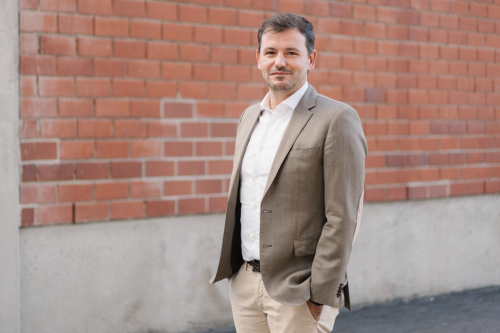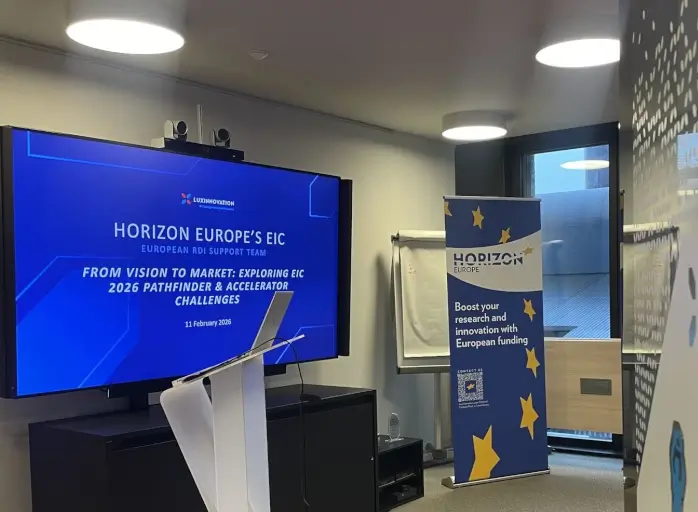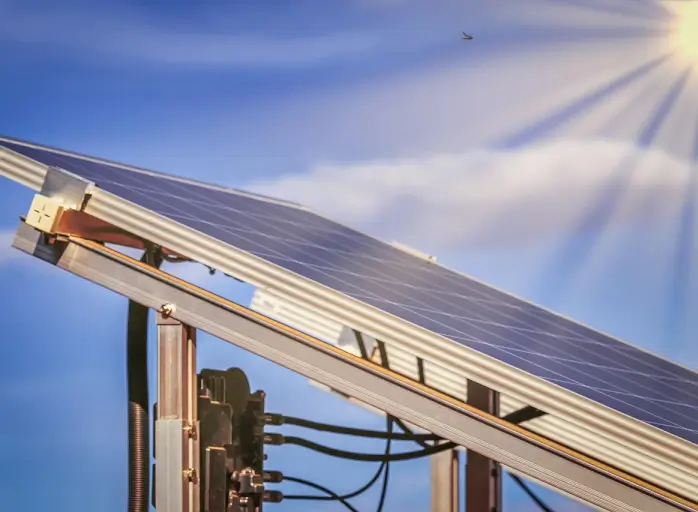

Luxinnovation appointed national contact point for the EU Innovation Fund
The national innovation agency has been mandated by the Ministry of the Environment to serve as the national contact point for the €40 billion European Innovation Fund.
 Abigail Okorodus
Abigail Okorodus
The innovation Fund is one of the world’s largest funding programmes for the deployment of net-zero and innovative technologies. It is equipped with a budget of €40 billion for the 2020 to 2030 period and is financed by the EU Emissions Trading Systems (ETS), a cap-and-trade system to combat climate change and reduce greenhouse gas emissions and one of the EU's main climate policy instruments.
In June 2024, Luxinnovation was appointed by the Ministry of the Environment, Climate and Sustainable Development to serve as the national contact point (NCP) for the fund. The national innovation agency currently serves as the NCP for other European programmes like Horizon Europe and the Digital Europe Programme.
 “Drawing on its long-standing experience with European programmes, Luxinnovation will support Luxembourg companies in their applications to the fund,” states Serge Wilmes, Minister of the Environment, Climate and Biodiversity.
“Drawing on its long-standing experience with European programmes, Luxinnovation will support Luxembourg companies in their applications to the fund,” states Serge Wilmes, Minister of the Environment, Climate and Biodiversity.
“Our new mandate within the context of the Innovation Fund positions us strategically to propose an even larger range of applicable instruments matching the needs of Luxembourg companies,” underlines Stefano Pozzi Mucelli, Head of European R&D and Innovation Support at Luxinnovation.
Scope of the Innovation Fund
The Innovation Fund offers financing through grants and auctions, and supports innovation in:
- energy intensive industries
- renewable energies
- energy storage
- carbon capture, use and storage
- net-zero mobility and buildings.
 “Decarbonising European industry, supporting its competitiveness and transition to climate neutrality is really at the heart of the Innovation Fund,” explains Sanna Alaranta, Senior Advisor European R&D and Innovation Support at Luxinnovation.
“Decarbonising European industry, supporting its competitiveness and transition to climate neutrality is really at the heart of the Innovation Fund,” explains Sanna Alaranta, Senior Advisor European R&D and Innovation Support at Luxinnovation.
It covers 60% of project expenses for grants according to indicated conditions. For auctions, bidders that require the lowest public subsidy could get up to 100% coverage of the stipulated expenses.
The fund also targets projects with significant budgets on different scales. A small-scale project ranges between €2.5 to €20 million capex investment, the medium scale from €20 to €100 million and large-scale projects from €100 million and above.
Luxinnovation will support Luxembourg companies in their applications to the fund.
Serge Wilmes, Minister of the Environment, Climate and Biodiversity
“A very interesting benefit is the possibility for companies whose projects are not selected to get project development assistance from the European Investment Bank. And with that assistance, they can develop their project even if they don’t get the funding,” specifies Ms Alaranta.
About €6.5 billion have been awarded to over 100 projects so far. Its first EU-wide auction to produce renewable hydrogen was launched in 2023 and attracted 132 project bids from 17 European countries. Seven projects were chosen to receive almost €720 million in funding.
Role of Luxinnovation
As contact point in Luxembourg for the Innovation Fund, Luxinnovation will be responsible for delivering support services to all national stakeholders. This includes:
- identifying project ideas that match with the fund's scope
- providing guidance on structuring the proposal to fulfil fund criteria
- reviewing the proposals
- offering legal and financial advice
- organising promotional events for the fund
“Two Luxembourg proposals were submitted in 2023, where we already provided support for the applicants. We already envisage a first information session later this year. More information will be provided as the planning evolves,” hints Ms Alaranta, who is also responsible for exchanging with the NCPs in other countries. “These interactions will equip us with the relevant training and knowledge to assist applicants and benchmark our performance with the goal of improving our participation in the programme over time,” she adds.
Synergies with other programmes
Various innovation and funding programmes at national, European and international levels cater to companies of all maturities across different sectors. These programmes address diverse funding needs, project complexities, thematic focuses, consortium or single company compositions, and company maturity.
Luxinnovation’s new mandate also allows it to further promote synergies between funding programmes under its radar to maximise their impact. “For instance, once a technology is developed under research and innovation programmes like Horizon Europe, it could transition to the Innovation Fund for deployment and scaling,” states Ms Alaranta.
Our new mandate positions us strategically to propose an even larger range of applicable instruments matching the needs of Luxembourg companies. Stefano Pozzi Mucelli, Luxinnovation
Under the Innovation Fund, for example, the topics are broad compared to Horizon Europe, and there are no detailed topics. However, in addition to submitting a proposal, Innovation Fund applicants also need to submit a feasibility study, an emission calculation and relevant cost calculation. And while Horizon Europe promotes applications as part of a consortium, companies can apply alone to the Innovation Fund. “These different requirements provide alternatives for companies to explore, but our operational mode remains more or less similar,” concludes Ms Alaranta.







